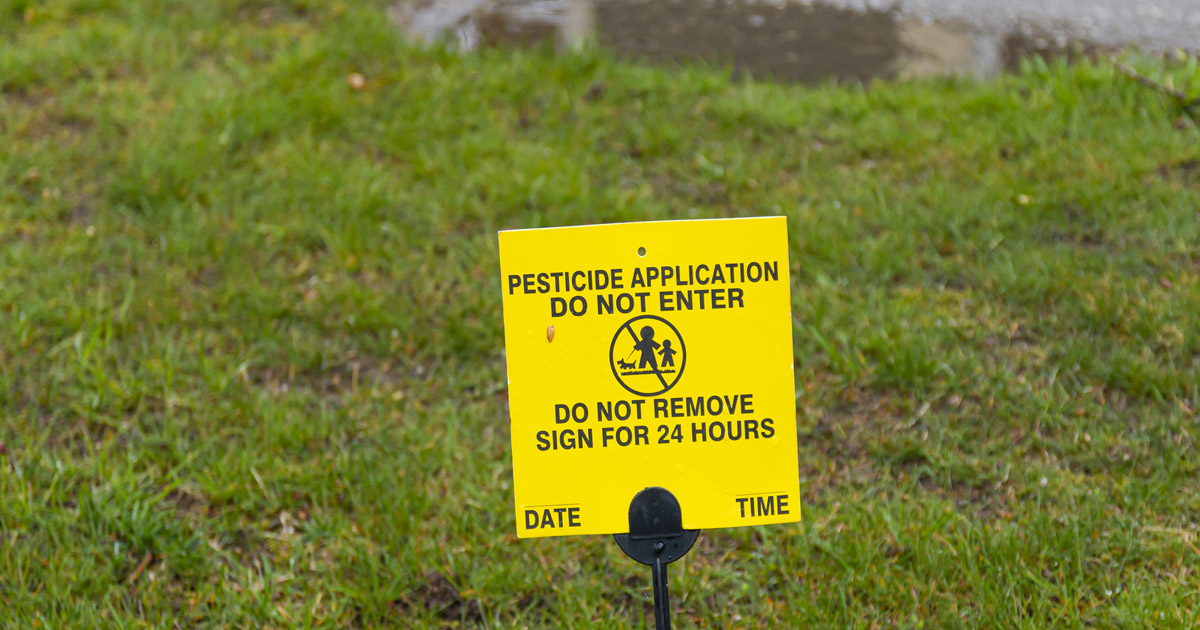MENU
- Home
- Overview
- Attorneys
- Practice Areas
- Firm News
- Blog
- Contact

Recent changes to zoning rules have raised safety concerns about the use of pesticides on farming land. The U.S. Environmental Protection Agency (EPA) is tasked with regulating the use of pesticides for the safety of the environment and people.
The EPA defines pesticides as any substance or mixture used to prevent, destroy, repel, or mitigate any variety of pests. Pesticides are often mistakenly thought of as being specifically insecticides, however, the term applies to a wider range of pests. Types of pesticides include herbicides, fungicides, and assorted other substances commonly used in pest control. Pesticides can also refer to plant regulators, defoliants, and desiccants.
When people think of pesticides, they likely envision store-bought insecticides, weed killers, or fungicides; however, there is much more to pesticides. Those products on the store shelves are actually formulations that include multiple different materials. The combination of ingredients presents more of a challenge for regulation and understanding of health and safety impact. These formulations not only contain pesticides, but have assorted active and inert ingredients that have different ways of interacting with the environment. Certain impurities and metabolites may also exist in the mixture, which can make it more toxic.
Pesticides can be harmful to the environment in multiple ways. Pesticides can lead to water contamination, making drinking water toxic, and it can even be deadly for livestock and humans. Pesticides in the soil can cause long-term issues as well. One of the most concerning dangers is direct physical contact.
Pesticides can be very harmful to humans. Some can cause physical damage to the skin and eyes. Many pesticides are harmful when inhaled. Pesticides have been linked to respiratory issues, birth defects, and more.
The EPA is responsible for setting guidelines for the safe use of pesticides. Pest control is an important part of agriculture and farming, however, precautions must be taken to limit exposure to dangerous chemicals and toxins. Determining these precautions is the role of the EPA.
The Pesticide Registration Improvement Act (PRIA) first came into existence in 2004 and set additional regulations for the purchase and use of pesticides. The EPA renewed these provisions in 2007, but in 2020, the EPA made modifications to the existing regulations.
New changes have reduced protections for people exposed to dangerous chemicals during pesticide applications. Previously, those applying pesticides were required to stop spraying when people were within 100 feet. The revised rules take away the distance-based zone requirement. It only applies when it is within the property line of an agricultural establishment. This leaves the door open for others to come into contact with hazardous materials and suffer damages. If a person is concerned about pesticides and their health, they should speak to a lawyer about their legal options.
If you believe you have been impacted by pesticides or other environmental hazards, one of our Delaware environmental lawyers at Jacobs & Crumplar, P.A. can help you. We represent clients who have suffered damages from pesticides and deserve compensation. For a free consultation, complete our online form or call us at 302-656-5445. Located in Wilmington and Millsboro, Delaware, we serve clients throughout Dover, Sussex County, and New Castle County.